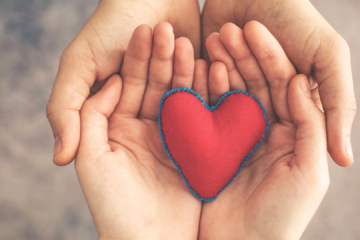All abilities means different things to different people
I’ve recently noticed some local events being described as “all abilities” events. I’m never quite sure about what I will find when I turn up to an “all abilities” event because it means different things to different people.
To me all means all. So an event labelled “all abilities” means open to absolutely anyone to me.
I recently did a poll on the Good Life Builders Facebook Group where members are largely parents of adults with disability, asking members what the phrase “all abilities” meant to them.
Overwhelmingly (82%) thought the term meant open to all people, disabled or not disabled.
Service providers often mean “all disabilities”
Many people felt that service providers describing these events as “all abilities” actually meant “all disabilities”.
“there is a difference between what “all abilities” means to me and what the organisers of any event using this language mean. …In my experience, it means an exclusive, disability specific group but this isn’t necessarily what it sounds like to people outside the disability community.”
“Our local football team, for people with disabilities is called ‘all abilities”. I’ve always found it strange. I think it actually means “all disabilities”, as in anyone with any type of disability”
Sometimes it doesn’t mean all disabilities either
Some people also experienced not being included in these “all disability” events.
“in our experience it’s been only those who can walk, run, articulate well, feed and toilet themselves and under no circumstances have any semblance of a behavioural problem “.
It can make the event sound a bit weird
Some people felt that “all abilities” made the event sound weird.
“If my neighbours had something on they would just say ‘ come round, everyone’s welcome’s…’all abilities’ just tells the rest of the world it’s something weird”
“calling an event “all abilities” makes it sound weird and by association there is a risk that it could makes the people who attend seem weird too, a weird event for weird people and I’m sure that’s not what the organisers intend.”
It’s a term that tries to make the event seem inclusive when it isn’t
Several people felt that “all abilities” was trying to make the event appear inclusive
“it’s PC speak for disabled services”
“My sense about this kind of ‘ event’ is that it has been dressed up to look like inclusion”.
“The moment you say something is inclusive…it’s not.”
So what does inclusion really look like?
For me an inclusive event for people with disability is one that….
- Is held in the usual location where people without disability do this activity
- Has people with and without disability attending the activity
- Is done in the usual way at the usual time
- Makes people with and without disability feel welcomed
- Events for people with disability are fine, just don’t call them inclusive
So a disco for people with disability at the local neighbourhood centre held from 7pm – 9pm on a Thursday would not fit the above criteria for inclusion because:
- Discos are usually held in a pub or club not a neighbourhood centre
- The event is only for people with disability so they would not be dancing alongside people without disability
- It’s being held on a Wednesday from 7-9pm – discos are usually on a Friday or Saturday night and kick off at around 10pm.
- It’s unlikely that people who loved to dance who didn’t have a disability would be welcomed to such an event. Perhaps they might even be suspected of being predators?
And sure, such a disco might be wonderful fun and meet the needs of the people with disability who attend. There is absolutely nothing wrong with that. But it’s still not inclusive and events like this are often called inclusive.
Here is a list of events that are described as inclusive but don’t mean the above definition. That does not mean these events are a bad idea. They are just not truly inclusive.
National AFL inclusion carnival
Calling something inclusive when it isn’t confuses the wider community
Wouldn’t it be a great world if all events were inclusive and it didn’t matter if you had a disability, If you could just rock up to participate, your needs are met and you just belong to the wider community.
Aspiring to be inclusive is a great thing. But using language that hints that something is inclusive when it isn’t just confuses people about what real inclusion is. There is a risk that community groups might stop striving for real inclusion if they become unsure of what it looks like.
So how should we advertise events?
Service providers have an important role in educating the community about inclusion so its important to use appropriate language when advertising events.
“A [insert event here] for people with disability, their family, friends and supports” is a very clear way of describing an event that is for people with disability, without confusing people. You could also add “let us know how we can accommodate your needs” might also be helpful for people with disabilities to be more confident they will be welcomed.
Tell us your stories of inclusion
Do you have stories of inclusion that do meet the criteria above?
Email us at hello@thegoodlifebuilders.com.au or post them on our Facebook group.
